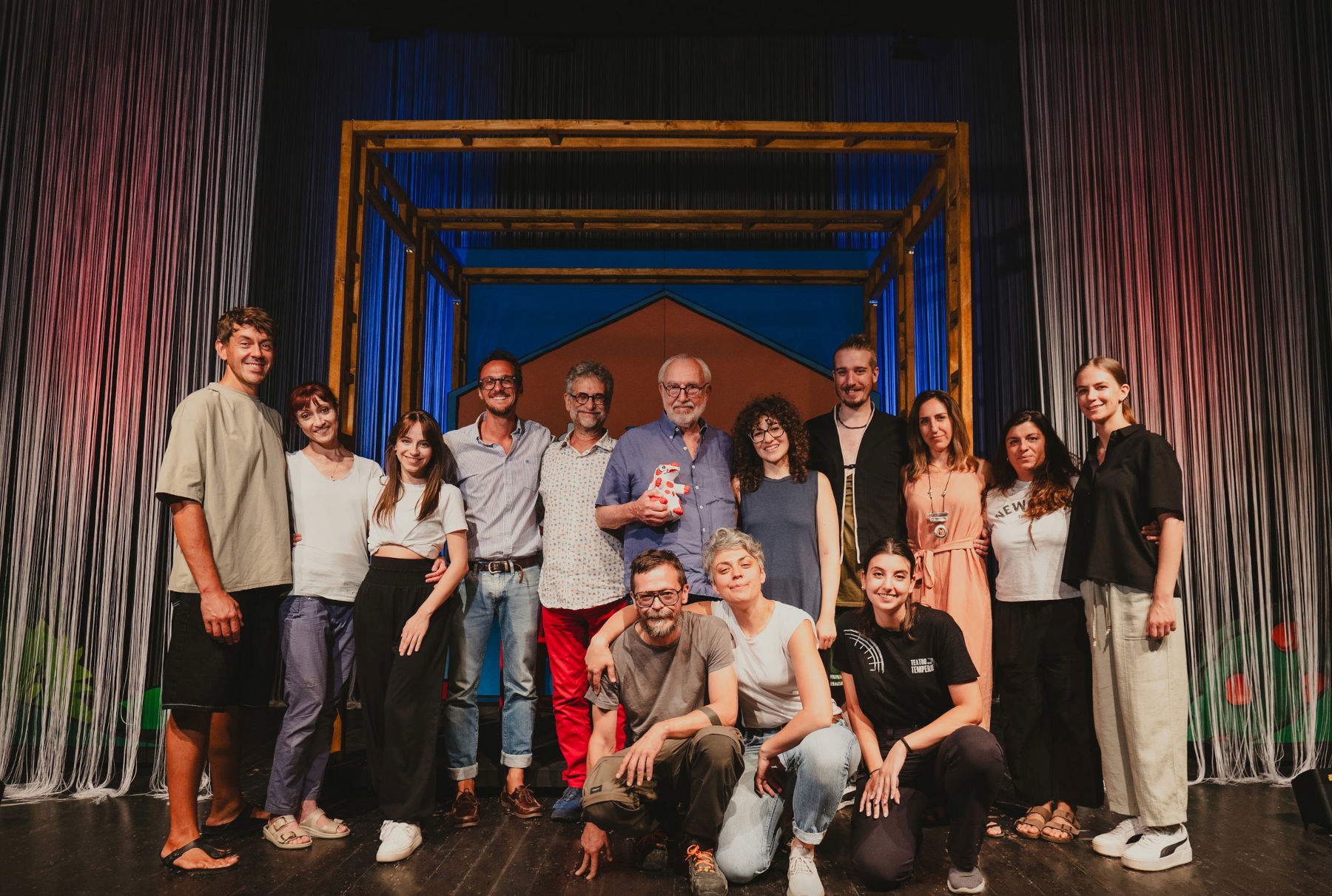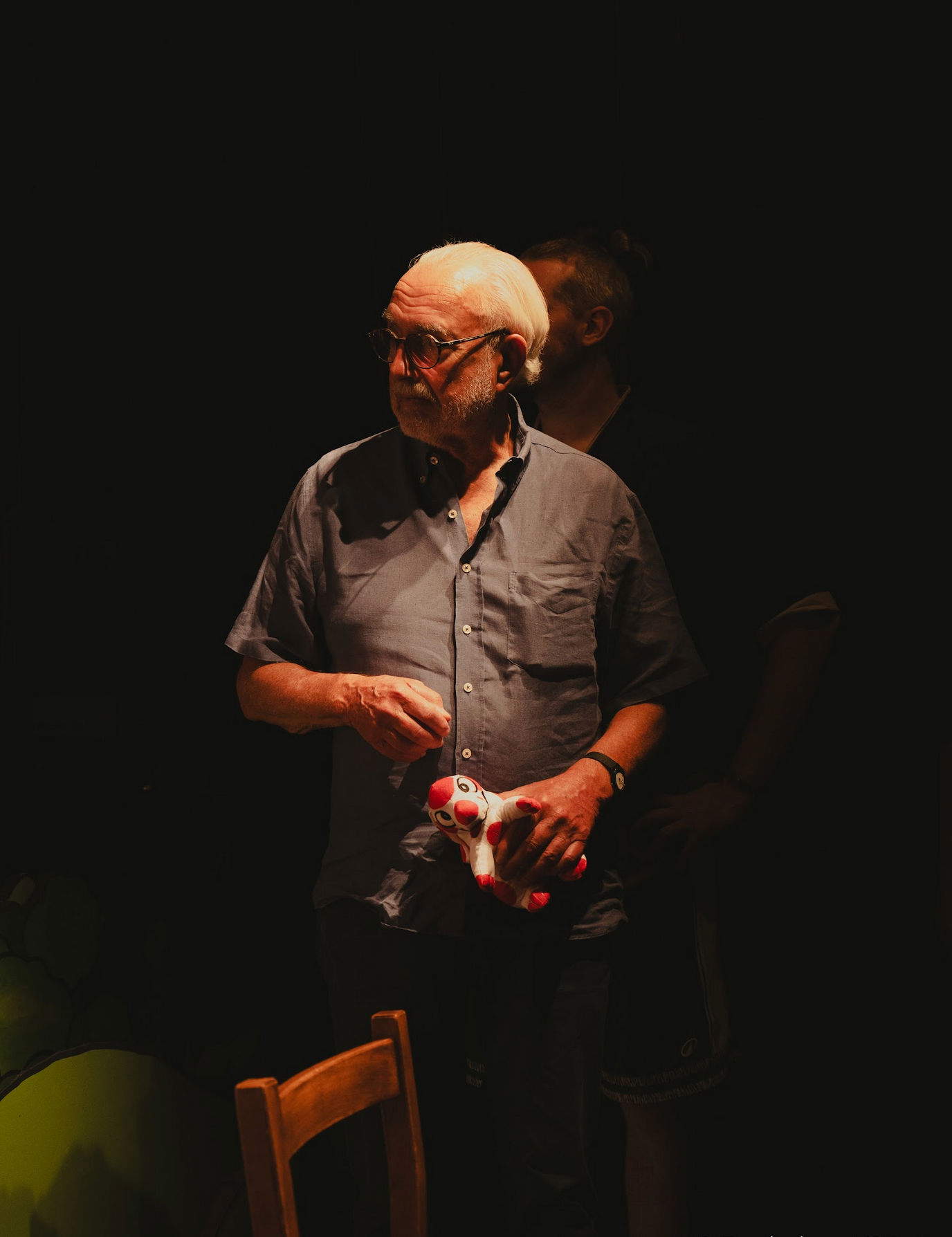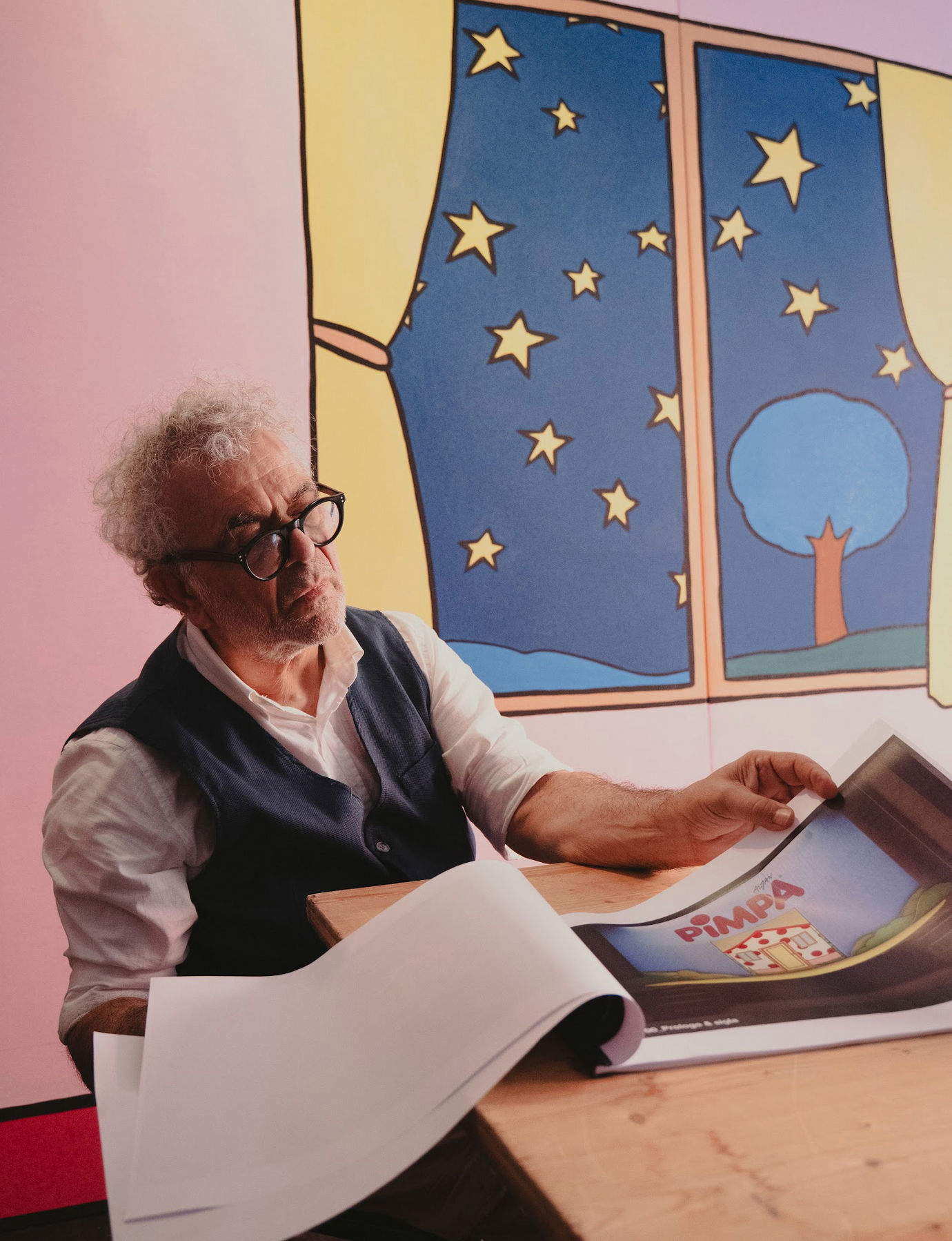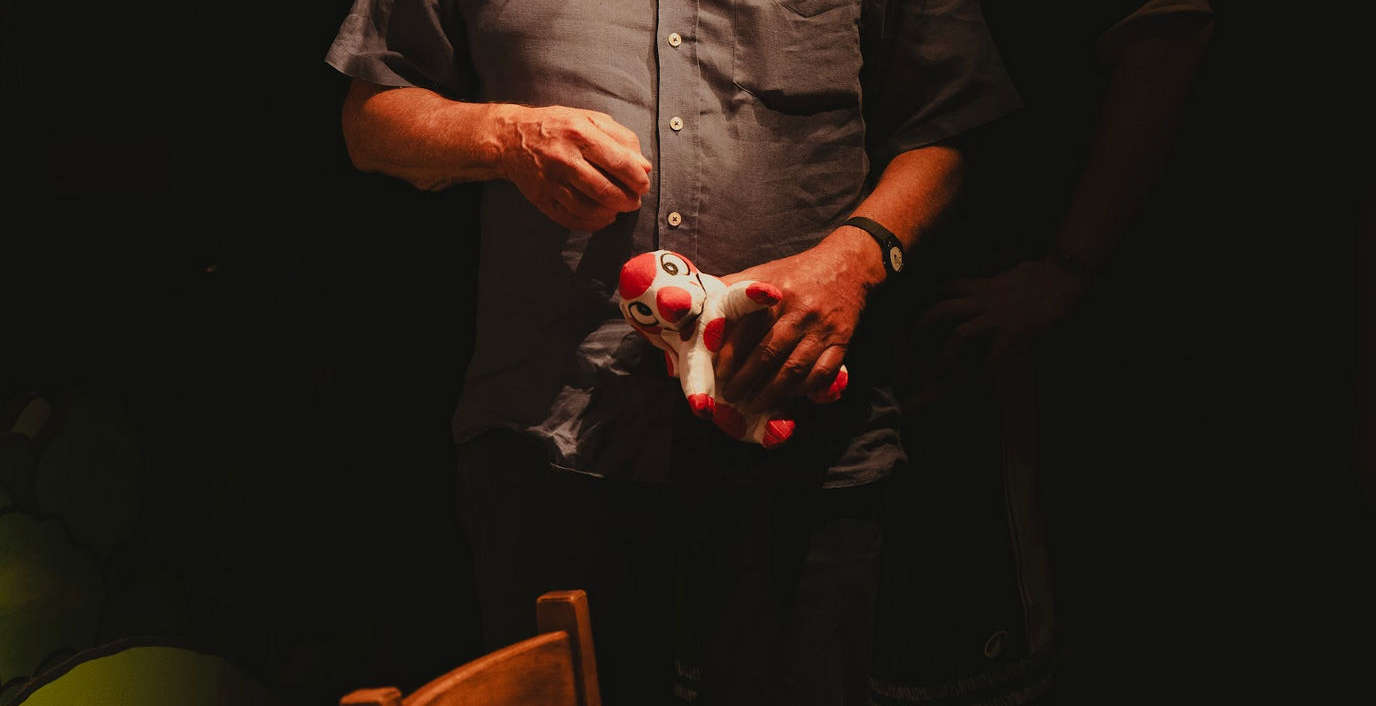For the first time in the history of the Veronese Theater Summer, the stage of the Roman Theater Verona will open to children’s theater. On August 1 and 2, 2025, at 9:15 p.m., it will debut Pimpa. The Polka Dot Musical, an original show dedicated to the little dog Pimpa created by Francesco Tullio Altan exactly 50 years ago. The musical is written by Altan together with Enzo d’Alò, who also signs the direction, and represents a new chapter in the stage evolution of the most iconic character of children’s illustrated literature in Italy. The initiative was enthusiastically welcomed by the City of Verona and Arteven, which are supporting its realization as part of the Verona summer festival. The project is the brainchild of the AIDA ETS Foundation, a historic Verona-based organization that has been active for more than 40 years in the production of shows for children and families, with a special focus on characters from children’s imagination and their translation into the languages of contemporary theater.
“With Pimpa, even little boys and girls experience the magic of this wonderful open-air theater of ours,” stresses Marta Ugolini, Councillor for Culture of the City of Verona, “aware of the value of the artistic project bearing the important signatures of Tullio Altan and Enzo d’Alò, we enthusiastically welcomed Fondazione Aida’s proposal to bring to the Roman Theater the show ’Pimpa. The Polka Dot Musical’. Even more, we wanted to include it in the Veronese Theater Summer, an open-air multidisciplinary festival second only to the Arena opera festival in Verona. For the first time, a family show enters the Summer Theater billboard, a testament to the municipal administration’s commitment to broadening audiences, with a desire to make culture increasingly widespread, inclusive and accessible, bringing the newest generations and families closer to the world of theater. Pimpa, with his imagination and curious spirit, perfectly represents the values we want to convey: enthusiasm, discovery, sharing. This may sound like a dream, but under the stars of the Roman, even polka-dot dreams can come true.”
At the center of the musical is an entirely unprecedented story. One day, in the house of Pimpa and his friend Armando, a letter arrives from an unusual sender: William Shakespeare. From here begins a theatrical adventure set within the walls of the home, where everyday life is transformed into a stage. The famous English playwright appears on stage to guide the two protagonists, and the audience, in discovering the mechanics of theatrical performance. The story unfolds between puppets, comic skits, light choreography and original songs, with a rhythm that alternates playful moments with more poetic passages, always under the banner of imagination.
The show runs 75 minutes and is designed to engage spectators of all ages. While remaining true to the original spirit of the character, the musical expands its language and propels it into an autonomous theatrical dimension. Play becomes theater, and theater becomes play: an overlap that invites children and adults to rediscover the pleasure of shared storytelling, the value of friendship and the importance of shaping, even lightly, one’s imagination. The homage to Shakespeare results in an ironic and delicate reflection on stage fiction, which ideally closes with the famous phrase “All the world’s a stage.”

Pimpa, with his distinctive red polka-dot cape, has been an emotional and educational reference point for several generations for decades. The musical, designed for a cross-generational audience ranging from toddlers to adults who have grown up reading her adventures, aims to breathe new life into the character through a staging that weaves music, spoken word, puppets and set design into a striking theatrical context.
It is directed by Enzo d’Alò, one of the most successful animated film directors in Europe, known for films such as The Blue Arrow and The Gabby and the Cat. D’Alò thus returns to collaborate with Altan, with whom he had already worked on the Pimpa animated series. The understanding between the two authors has given rise to a poetic and playful musical, in which the narrative structure is developed through scenic pictures rhythmically set to music and animated by a cast of young actors and singers. At the center of the work is music, composed by Eleonora Beddini. Her original songs build a parallel language that accompanies the stage transformation and emotionally supports the audience. The melodies, designed to be catchy but not trite, mix different musical styles from various traditions around the world. The composer’s goal is to evoke a soundscape suspended between memory and imagination, capable of awakening shared memories and suggestions. The result is a score that acts as a thread running through the entire narrative, lending coherence and depth to the theatrical experience.
“In this musical we sing about play that becomes theater and theater that reinvents itself as play,” says Enzo d’Alò.“We wanted to tell children how great theater can be born from the ability to play, to ’pretend.’ A serious, passionate and visionary game, where Pimpa meets William Shakespeare and, together with him and the unfailing Armando, has fun exploring this wonderful world.”

“Pimpa is turning fifty, but he has not lost his desire for new experiences,” Altan continues. “After the cartoons, of which Enzo d’Alò directed the second series, the stage of a musical will be, also for her, a beautiful new adventure.”
“Altan, on the one hand. Enzo d’Alò, on the other,” says Simone Dini Gandini, artistic co-director with Roberto Terribile of AIDA Foundation. “Here the daddy of Pimpa, an illustration genius who is still a reference point of Italian culture tout court; here the Master of animation cinema. Added to this is Fondazione AIDA’s more than 40 years of experience in the production of family shows, which has fired all the arrows in its bow to make Pimpa - the polka-dot musical a new classic of Italian theater. A special thanks also to all the staff, who with dedication and professionalism over the months have given everything (and more) for this project; and a big good luck to the very young and enthusiastic cast, who I am sure will be able to excite the children of today and yesterday.”
The musical represents a challenge from a scenic and visual point of view. The sets, curated by Luca Zanolli and Mariangela Mazzeo, translate Altan’s two-dimensional universe into a three-dimensional theatrical language, without losing the distinctive features of the original. The Pimpa puppet, designed by Mazzeo herself, was created with technical support from Matteo Maiocchi and Luca Zanolli. Actors on stage animate the puppets and interact with a dynamic and transformable set designed to accompany each stage of the story. Pimpa’s house is thus transformed into a kind of theatrical machine, reflecting the metatheatrical dimension of the show, which constantly plays with the idea of representation and disguise.

Pimpa. The Polka Dot Musical is conceived as a show for the whole family, but it is not limited to a playful dimension. It is also a tribute to the art of storytelling and the ability of theater to build shared imaginary worlds. The entry of Pimpa into the repertoire of the Veronese Theater Summer marks an important symbolic step: it is the first time that a family show has been included in the playbill of one of Italy’s longest-running theater festivals, hosted in one of the country’s most significant archaeological and cultural settings. The initiative thus represents an opening to new audiences and an enhancement of children’s culture through instruments of high artistic quality.
The show is produced by Fondazione AIDA ETS together with Estate Teatrale Veronese, Centro Servizi Culturali Santa Chiara, Teatro Comunale Mario Del Monaco, Teatro Cristallo di Bolzano and Associazione ATTI. Also collaborating are Coordinamento Teatrale Trentino and Fondazione Caritro, which supported its realization. Estate Teatrale Veronese is promoted by the City of Verona in collaboration with the Arteven multidisciplinary circuit. The project is supported by the Ministry of Culture, the Veneto Region and sponsors AGSM AIM, Banco BPM and Gruppo Vicenzi.
 |
| A musical about Pimpa: the debut at Verona's Roman Theater |
Warning: the translation into English of the original Italian article was created using automatic tools. We undertake to review all articles, but we do not guarantee the total absence of inaccuracies in the translation due to the program. You can find the original by clicking on the ITA button. If you find any mistake,please contact us.